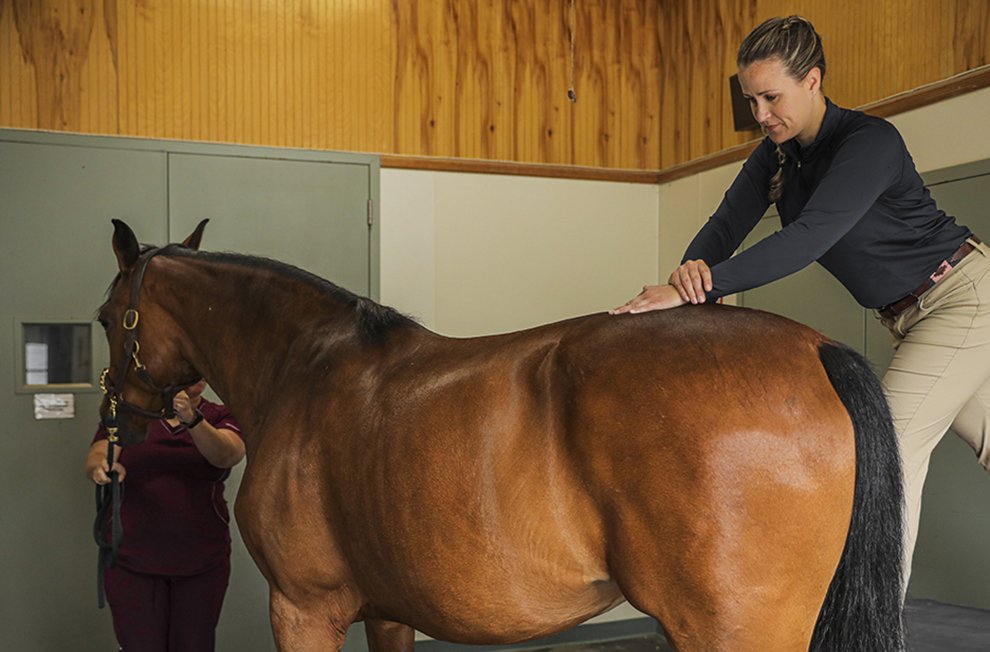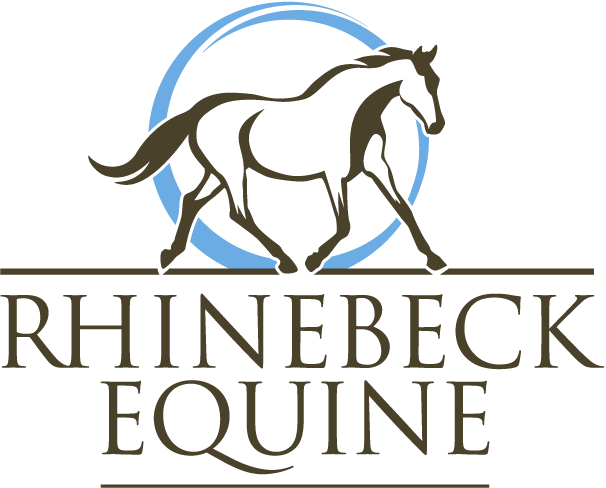
Chiropractic Services
Rhinebeck Equine provides equine chiropractic services in conjunction with other treatments as a way of promoting healing and holistically improving overall body health. Equine chiropractic treatment can also help identify early-stage musculoskeletal disorders.
Chiropractic is a holistic approach that focuses on the relationship between structure (primarily the spine) and function (coordinated action by the nervous system). Adjustments can help restore normal spinal column movement and promote healthy neurologic activity. This, in turn, supports biomechanical and musculoskeletal function and contributes to improved overall health for patients.
Chiropractic care centers on detecting abnormal or decreased motion of the individual vertebra and helping restore the normal function found in healthy horses. It does not replace traditional veterinary medicine; however, it can provide additional diagnostic and treatment means for a variety of musculoskeletal disorders and performance problems. It can also help the veterinarian identify subclinical conditions not yet causing clinical signs or abnormal biomechanics. If left untreated, these conditions might progress to more significant lameness issues.
Equine chiropractic is a form of manual therapy that uses high-velocity and low-amplitude controlled thrusts. Performing chiropractic adjustments is the art of applying thrusts to specific articulations or anatomic regions to induce a therapeutic response.
Horses that could benefit from chiropractic care present with many signs, the most common of which are pain or discomfort.
Common observations that indicate a horse might benefit from chiropractic care include:
Muscle atrophy;
Behavior changes such as ear-pinning or biting during saddling, head tossing under saddle, and tail swishing or ear pinning during work;
Abnormal posture, including difficulty performing lateral movements, collecting, turning, or working in one direction;
Reduced performance (e.g., disobedience while jumping, bit or bridle problems);
Sensitivity to touch or grooming;
Difficulty chewing and or TMJ pain; and
Decreased range of motion, gaits stiffness, or difficulty engaging the hindquarters and flexing the neck and/or poll.
Proactive chiropractic treatments might benefit horses during recovery periods following injury or offer preventive or maintenance care for horses in training. Other reasons you might pursue chiropractic for your horse include recurring musculoskeletal ailments or conditions otherwise unresponsive to conventional therapies.
While chiropractic care will not reverse degenerative changes it can alleviate pain in horses with chronic conditions. Routine adjustments might contribute to the rehabilitation of most cases by helping restore normal nerve, muscle, and skeletal function. This therapy’s benefits are greatest when used as a preventive approach in conjunction with traditional veterinary care—to help keep a horse balanced, healthy, and performing at their best.
Please reach out if you are interested in chiropractic services.


